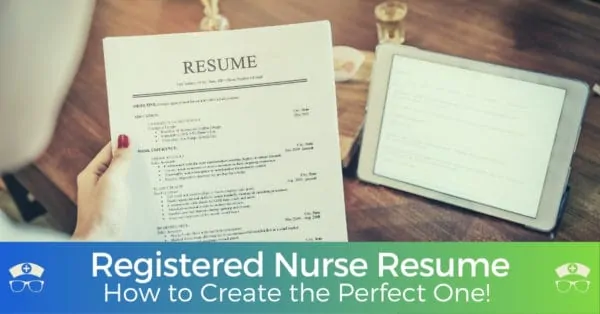If you’ve ever paid attention to how certain creatively-oriented professions work (such as dancers, artists, writers, and even teachers), then chances are that you’ve come across the term “freelancer”. “Freelancing” is an option that allows people to work at their convenience, based on their schedule and availability. In other words, no commitment to a long-term employer or employment. If you can understand the term “freelancing,” then what per-diem means becomes simpler to understand due to their similar nature.
What Does Per-Diem Mean?
“Per-diem” in Latin means “per day” or “by the day” (“carpe diem”, remember?). This refers to people who work and are paid daily instead of long-term employment. For example, “per-diem” nurses may be assigned to different hospitals and different divisions as and when needed, whereas regular nurses work at only one hospital and division. It is common practice for professionals in the field of medicine to work “per diem” along with their regular jobs, as it’s a great way to earn extra income.
What Is the Need for Per-Diem Nursing?
Sometimes, hospitals and clinics may be low on manpower, in which case they use “per-diem” staff. For example, in the case of a large-scale accident with many injured people or even an epidemic such as the flu, the hospital will resort to “per-diem” employment rather than hiring more permanent staff, as these two situations are temporary. Accident victims will only require short-term care, and the flu will subside in a few days. This also helps hospitals lower their costs and prevent overstaffing.
Sometimes, “per-diem” staff are also required to fill in the time between an employee’s resignation and the hiring of a new employee. Also, in the case of an employee’s vacation, it may be difficult to find a replacement for a short period, especially given the specialized nature of the healthcare profession. In such cases, “per-diem” staff are the perfect option.
So How Does It Work?
In order to be able to work as a “per-diem” nurse, it is necessary to be registered and hold a license that allows you to practice in a particular state or area. Generally, nurses with experience are preferred as they may be required to play various roles in the “per-diem” employment. Due to the nature of the work, “per-diem” nurses are also expected to be team players with flexible schedules and the ability to work when needed.
Such nurses can then register with an agency or staffing firm that can apprise them of vacancies as and when they come up, which can be in schools, clinics, hospitals, or other places that require a nurse. Per-diem nurses often work as a float nurse. Though it is also possible to work as a “per-diem” nurse without registering with an agency, it may be more difficult to find work as nurses will have to rely solely on the internet, word-of-mouth or personal contacts. Working per diem may also increase a Registered Nurse’s salary.
What Are the Benefits of Being a Per-Diem Nurse?
Working on a “per-diem” basis may result in more benefits than working as a regular nurse. Some of the possible benefits are:
Flexible Schedule: If you have other commitments, such as family or another regular job, you can still work because most “per-diem” employment lets you choose your timings. You can decide how many hours you want to work per day or per week and at the time of the day that is most convenient for you. However, some agencies may not allow this option, so ensure you pick the right staffing firm to register with!
Extra Income: If you’re already working a full-time nursing job but still want extra income, then “per-diem” nursing is a great option! Most times, “per-diem” employment pays better than regular employment as vacancies may come up at the last minute, and hospitals pay “per-diem” nurses as an incentive to fill the vacancies.
Exciting and Challenging: It’s true! “Per-diem” nursing can be very exciting, especially if you’re someone who’s always loved a challenge! “Per-diem” nurses must fill various roles and work in new places, where they’re quickly expected to gel well with the already existing team. “Per-diem” nursing is also a great option for those bored with a regular job and looking for a break from the routine while still working.
Lets You Experiment: If you’re new to the area and are confused about what the best place to work could be, “per-diem” nursing lets you work in different places without a commitment. You can decide which services or departments you like working with and what kind of work you enjoy before committing to a long-term employment.
More Free Time: If you’re only working “per-diem”, then you are the dictator of your own schedule. This means extra downtime for yourself and no overtime!
The Cons of Being a Per-Diem Nurse
Every coin has two sides, and sadly, “per-diem” nursing isn’t just all rainbows and unicorns. Some hardships you may face while working as a “per-diem” nurse are:
The Right Agency: It can be hard working “per-diem” without registering with an agency; therefore, ensure you pick the right one to work with. Some agencies may not let you choose your own schedule, and some may ask you to sign contracts stating that you will supply the hours they ask for as opposed to what you are willing to supply.
Last-Minute Demand: Though this is great because it means the pay is better, it can also be irritating if you need to fill a 3-11 pm shift and are only informed of this at 2:30 pm and expected to be there.
Lack of Stability: If you’re only working as a “per-diem” nurse, you’ll have to accept that work may not come in regularly, which means that income will also be irregular. Work may also be irregular because some specializations are more demanding than others, and some may be rarely required.
No Employee Benefits: “Per-diem” nurses don’t enjoy the same benefits as regular nurses, such as health insurance, sick leave, vacation time, and other healthcare benefits. While this may not concern nurses who already hold a regular job, exclusively per diem nurses will face difficulties because they are not affiliated with one particular institute or place of employment. This makes finding a staffing firm covering all the mentioned necessities all the more important.
Though the cons of being a “per-diem” nurse may have slightly thrown you off, they can all be solved with the help of a good staffing firm, independent nurse recruiter, or agency. “Per-diem” nurses enjoy many benefits that regular nurses don’t, so “per-diem” employment is quickly gaining popularity. Ensure you know what you’re signing up for, and all will be well!







Thanks Brittney for this excellent and informative write-up. As usual, you are an invaluable source for the nursing community.
Thanks for the great article!
I’ve had 2 very different experiences being per diem through the hospital, not an agency. My first job I was per diem, I worked EVERY SINGLE DAY I gave them availability. So I loved the flexibility of working whenever I wanted to.
My second experience per diem wasn’t as positive. By this time I also had a kid. The last 2 months I worked at the job I gave them 1-2 days a week of availability and I worked a total of 4 HOURS the whole 2 months. I eventually had to give the job up because it’s hard to constantly put a babysitter “on call”.
I LOVED per diem at my first job- so I think it definitely can be an awesome opportunity for having a very flexible schedule.
Hi Brittney,
You’ve done a great job of describing the pros and cons of per-diem nursing. I work per-diem as a biometric screener and flu vaccination nurse. I absolutely love the flexibility of my schedule. The down side is that some months of the year we’re super busy and other times there’s almost nothing. The slowest time of the year is around Thanksgiving and Christmas. While it sounds like a dream come true for a nurse to have so much time off over the holidays, it also means I need to be super careful about my budget.
One more nice thing about working per-diem is that I have a lot of choice as to where I work. If I have a negative experience at a particular location, then I simply don’t sign up for it next time.
Diane, thank you so much for sharing some of your experience. You add some great points about being able to choose where to work. And the importance of budgeting.